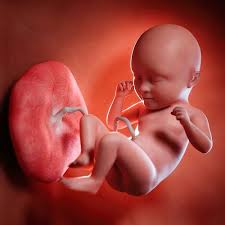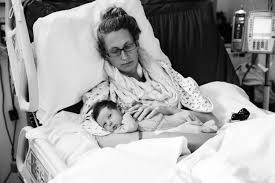
Experts - Doctors should account for placenta after childbirth to avoid trouble
Prominent medical experts have advised doctors to make sure they take into consideration the placenta of women who have given birth in order to prevent causing problems for their relatives.
The doctors disclosed that numerous doctors had experienced harassment from relatives of women who gave birth at their hospitals due to their inability to account for the placenta.
Senior medical professionals who participated in separate interviews pointed out that while placenta collection had no scientific foundation, some Nigerians were adamant about collecting it because of cultural beliefs following childbirth.
Remember how a doctor and three nurses were detained by the Kwara State police in March 2024 in connection with the disappearance of a newborn baby's placenta and umbilical cord from Government Cottage Hospital in Iloffa, within the state's Oke-Ero Local Government Area?
The mother, Mrs. C. Williams, a class teacher at Orota Secondary School in Odo-Owa, was said to have given birth to the kid on Sunday night, but medical staff did not give her the placenta or the umbilical cord.
According to information obtained by our correspondent, the state criminal investigation department's general investigation section at the command in Ilorin is holding the health professionals.
Dr. Joseph Akinde, a consultant obstetrician and gynaecologist, informed our correspondent that some family members were so enamoured with the placenta that they threatened to sue the physician if he did not give it to them after delivery.
Akinde, a former chairman of the Lagos State chapter of the Society of Gynaecology and Obstetrics of Nigeria, stated that many Nigerian communities, particularly those in the east, place a high importance on the placenta.
"We have people who are superstitious," he clarified. A doctor can face extreme resistance if he is unable to explain the placenta, particularly in the eastern region of the nation.
Placentas are buried in specific locations by some individuals. They think that the child will always follow his journey to the placenta's burial site, wherever he grows up.
"Some people insist on obtaining control of the placenta because they think it could be used for ritualistic purposes.
"Therefore, this explains why some families are so enraged by it that they may even want to sue a doctor if he cannot explain it."
Akinde made note of the belief held by some individuals that the placenta's fate determines the child's future. He cautioned, "But there is no scientific basis for such belief and there is no medical basis for all of these."
Because they were unable to explain the placenta, some doctors have been subjected to harassment. A while back, a family caused quite a stir when a physician at a government hospital where the mother gave birth was unable to identify the placenta.
"They went to the media and started spreading rumours that the doctor had sold their baby's placenta, claiming the doctor was selling the baby's destiny."
To avoid allegations, the gynaecologist advised physicians to always make sure they account for the placenta.
He recommended that before disposing of a placenta, medical professionals should always enquire with the woman's family.
Former head of the Nigerian Medical Association, Cross River State chapter, Dr. Innocent Abang, also corroborated Akande’s statement, saying many people are steeped in traditional beliefs and practices about the placenta, though such practice has no scientific basis.
According to Abang, "They think that the child's destiny is buried there if someone picks up a baby's placenta and buries it."
Thus, it has numerous meanings associated with it. Usually, family members remove it on their own and bury it beneath a tree. On occasion, a coconut is planted on top of the placenta.
They hold that a child grows in the same way that a coconut does. They think that as it grows, the child's life will also flourish. Thus, the placenta carries many symbolic meanings in spiritual, traditional, and cultural contexts. It's quite humorous.
Medically speaking, the doctor stated that a newborn has no relationship with the placenta; more emphasis was placed on the fact that the gathering of the placenta by family members has no link with medicine.
But if a doctor doesn't provide the placenta, certain family members have the power to sue him or set fire to his facility.
"A lot of families don't make light of it. Should the physician inadvertently discard it, that physician faces consequences. They'll interpret it in a variety of ways.
Because of the placenta, numerous doctors have been mistreated by women's families following delivery. I've witnessed a situation where a family member caused major trouble for a placenta in a hospital. However, he added, "those who are not attached to the placenta are not bothered."
But he said, "Anything that you bring out of a patient in medical practice has to be shown to the patient."





